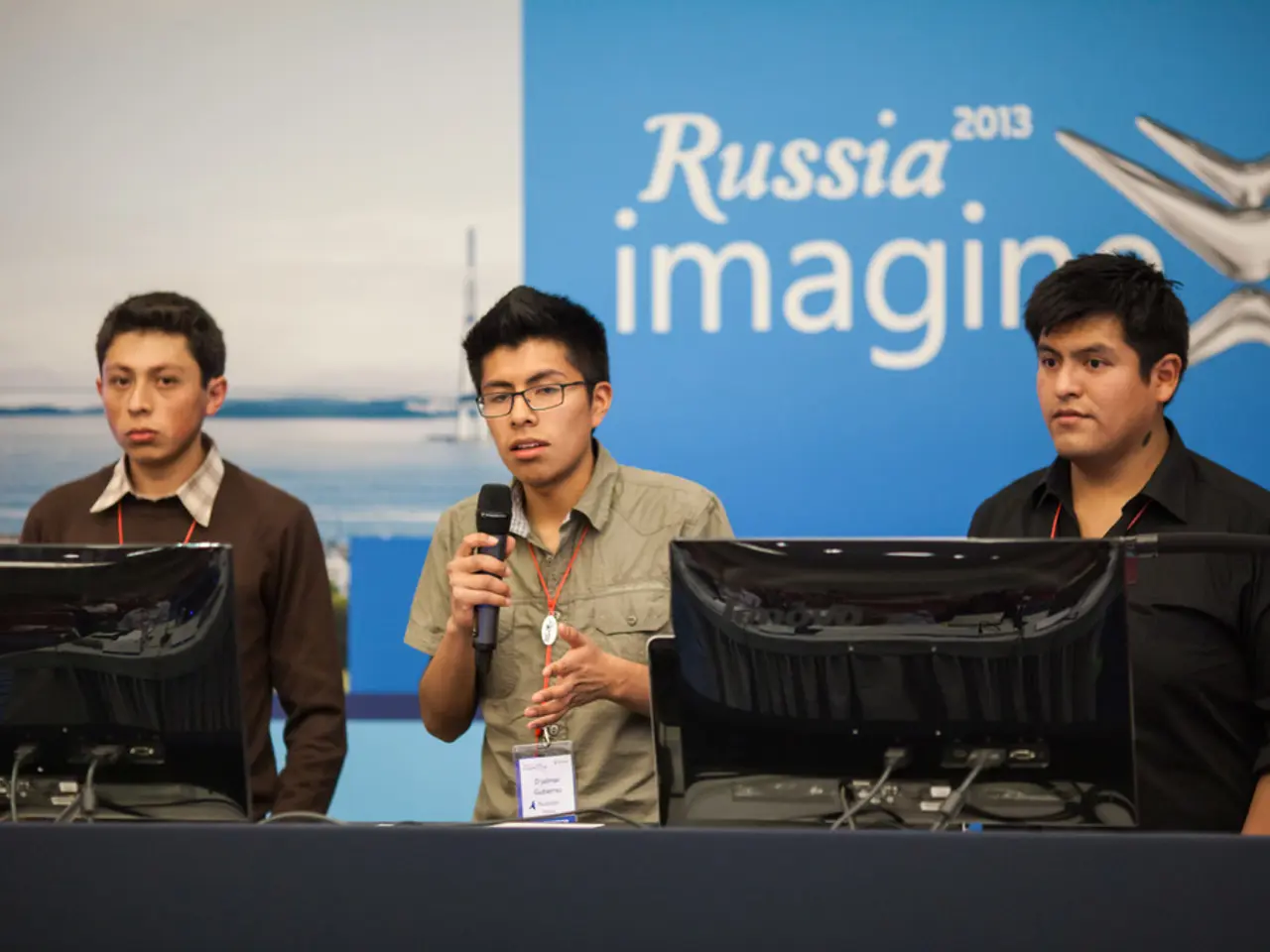"Disagreements arise over the use of land forces"
In the ongoing conflict between Ukraine and Russia, the need for military capabilities and political coordination to put pressure on Russia has become increasingly clear. This has been demonstrated by Ukrainian soldiers in Kyiv, Kherson, and Kharkiv.
The architecture of security guarantees for Ukraine is a topic of much discussion, with some suggesting that a European military presence should be part of any such guarantees. Nico Lange, a security expert, advocates for this view, emphasising the importance of supporting the armed forces of Ukraine.
While the deployment of ground troops might be a futile exercise, other elements are crucial in deterring Russia from a renewed attack on Ukraine after a potential ceasefire. These include a larger air force for the Ukrainian armed forces, maritime surveillance and coastal protection, conventional deterrence with cruise missiles, and political coordination of deterrence.
The USA, being the only country possessing cruise missiles like Tomahawk, could potentially provide a credible conventional deterrence. However, if Europeans do not deliver military equipment like the Taurus cruise missile, it may not be effective in putting pressure on Russian President Vladimir Putin.
The armed forces of Ukraine currently have few combat aircraft, and a larger air force could be provided by partners. Continuing to buy oil, gas, uranium, and fuels from Russia is filling Putin's war chest, making the delivery of military equipment all the more important.
The most important question remains: how to get Putin to agree to a ceasefire. Options include direct negotiations between Putin and Ukrainian President Volodymyr Zelenskyy, diplomatic ultimatums with fixed deadlines, security guarantees for Ukraine, and economic and military pressure, including sanctions and arms deliveries to Ukraine.
However, Putin's conditions for a ceasefire, including Ukraine renouncing NATO membership, "denazification," demobilization, ceding annexed territories to Russia, and lifting sanctions, are currently major obstacles to agreement.
It is worth noting that the conflict in Ukraine is not comparable to the situation in North and South Korea in 1953, making historical examples inapplicable.
Nico Lange also rejects the idea of German soldiers being deployed in Ukraine as part of any future security guarantees. He argues that if security guarantees come about after a ceasefire, including a European military presence in Ukraine, Germany cannot stand on the sidelines.
Turkey, Bulgaria, and Romania, as Black Sea coastal states, can conduct maritime surveillance and coastal protection under the Montreux Convention. The frozen Russian assets in Europe could also be used as a means to put pressure on Putin.
In conclusion, the focus should be on solving the problem of European security, not patrolling a contact line or standing eyeball-to-eyeball with the Russians. The Ukrainians can defend their front line more honestly than Europeans can. The discussion about ground troops is misleading, and the focus should be on supporting the armed forces of Ukraine.
Read also:
- ICE directed to enhance detention conditions following NYC immigrants' allegations of maltreatment
- Israeli finance minister issues warnings about potential annexation of West Bank territories
- United States faces rebuttal from South Africa over allegedly deceitful human rights report and assertions of land expropriation
- Accident at Rodalben Results in Injuries; Geoskop Area near Kusel Affected After Stormy Weather








